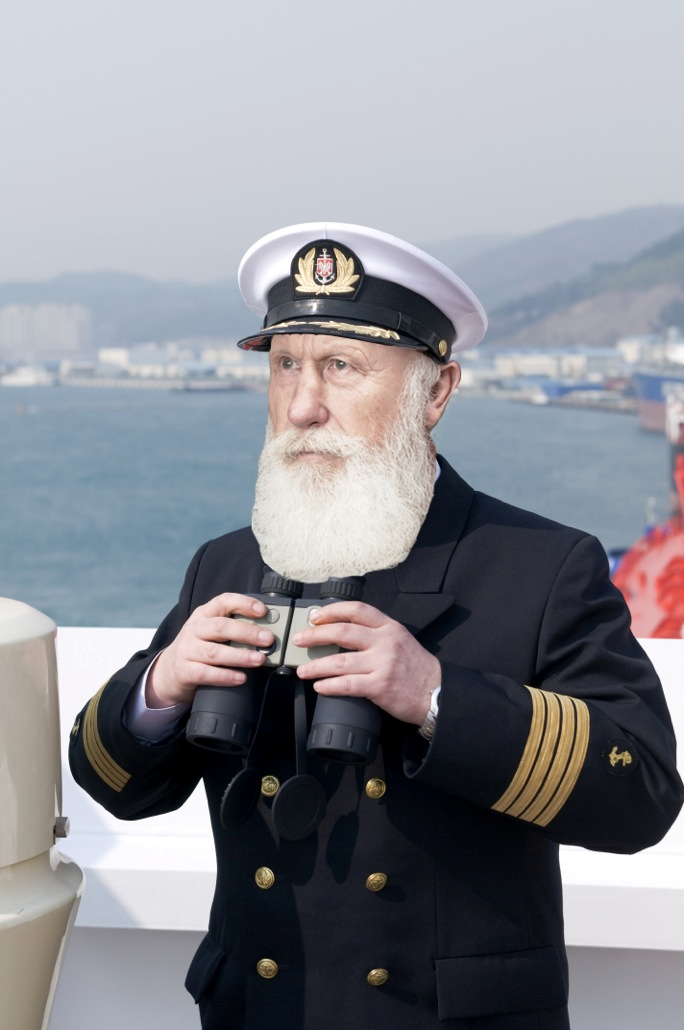When A Captain Goes Missing: The Unsettling Truth Of Leadership's Absence
Imagine a world where the guiding hand, the person in charge, suddenly vanishes. This is the profound unease that settles when a captain goes missing. A captain, you see, is much more than just a title; it's an appellation for the commanding officer of a military unit, or very often, the supreme leader or highest-rank officer of a navy ship, a merchant vessel, an airplane, or even a spacecraft. Their presence is a cornerstone of safety and direction, a sort of steady anchor in often unpredictable environments. So, when that anchor is gone, it really shakes things up.
The meaning of a captain is, quite simply, a military leader, the commander of a unit or a body of troops. This person is, in a way, the one at the head of or in authority over others. Whether it's the person in charge of a ship, an aircraft, an officer in a police or fire department, or even the leader of a sports team, the role carries immense weight. Their decisions, their presence, their very being, shape the path forward for everyone under their care. It’s a position that asks for a lot, and gives a lot in return, you know?
The sudden absence of such a figure can create a ripple effect, a kind of immediate void that can feel rather disorienting. It brings about a series of pressing questions and, quite frankly, a whole lot of concern for everyone involved. The impact stretches far beyond just the immediate team or crew, touching families, organizations, and sometimes, even the wider public. It’s a situation that truly highlights just how much we rely on those who lead us.
Table of Contents
- What a Captain Does: The Core of Leadership
- The Immediate Impact of a Missing Captain
- Emotional and Psychological Toll
- Legal and Operational Consequences
- Preventing Such Occurrences
- FAQ About Missing Captains
- Moving Forward After a Captain is Missing
What a Captain Does: The Core of Leadership
A captain, in many respects, is the heart of an operation. They are the person in charge of a group, whether it's a high school soccer team or a vast ocean liner. My text tells us a captain is the supreme leader of a navy ship, a merchant ship, an aeroplane, a spacecraft, or some other vessel. This means they hold the ultimate responsibility for the safety of everyone on board and the successful completion of the mission. They are the ones who command, lead, or guide others, especially.
Think about it: how to use captain in a sentence? You might say, "The captain steered the ship through the storm," or "The team rallied behind their captain." These examples show the captain's role in making big decisions, providing direction, and maintaining morale. A captain is also equal in grade or rank to a United States Army, Marine Corps, or Air Force colonel, which gives you a sense of the authority and experience they typically carry. They are the ones who make decisions, and, quite frankly, their word is often the final one.
The definition of captain noun in Oxford Advanced Learner's Dictionary speaks of meaning, pronunciation, picture, example sentences, grammar, usage notes, synonyms and more. This just goes to show how deeply embedded the concept of a captain is in our language and understanding of leadership. Captain CHS, for instance, seeks to uphold the dignity of each person by serving the basic needs of those struggling in the community that surrounds us. Our over thirty programs and services protect. This shows the captain's role isn't just about command, but also about care and protection, in some respects.
The Immediate Impact of a Missing Captain
When a captain goes missing, the first thing that happens is a sudden vacuum of authority. This can cause a lot of confusion and, perhaps, a bit of panic among the crew or team. Who makes the decisions now? Who is in charge of the vessel or the operation? These questions need answers, and very quickly. It's a situation that calls for immediate action and a clear understanding of protocols.
The entire structure of command, which is usually so rigid and clear, suddenly becomes very, very fluid. This is where established procedures for succession become incredibly important. Without a clear plan, the situation can quickly become even more chaotic, potentially putting lives or the mission itself at risk. It’s a truly unsettling scenario for anyone involved, you know?
Chain of Command and Succession
Most organized units, especially those like ships or aircraft, have a very strict chain of command. This means there's a clear line of authority, so if the captain is unavailable, the next in command steps up. This might be the first officer, the executive officer, or another senior member of the crew. This handover is supposed to happen smoothly, even in the most stressful situations.
However, the suddenness of a captain missing can test even the best-laid plans. The person stepping into the role might not have had time to prepare mentally, or the crew might need time to adjust to a new leader. It’s a rather challenging transition, to say the least, and it requires a lot of resilience from everyone involved. This is why training for such events is so important, actually.
Search and Rescue Efforts
Once a captain is confirmed missing, immediate search and rescue operations typically begin. This involves coordinating with various agencies, depending on where the incident occurred. At sea, it would involve coast guards and naval units. For an aircraft, it would be air traffic control and specialized rescue teams. The urgency is paramount, as every moment counts in these situations.
The scale of these operations can be vast, involving many resources and a lot of people. The focus is on finding the captain, but also on ensuring the safety of the remaining crew and the integrity of the vessel or mission. It's a very intense period, full of hope and, sadly, sometimes, disappointment. The efforts are truly dedicated, often spanning wide areas, so.
Emotional and Psychological Toll
The disappearance of a captain, a figure of authority and trust, can have a profound emotional impact on everyone connected. For the crew or team members, there's a mix of shock, worry, and uncertainty. They might feel a sense of loss, even if the outcome is unknown. This kind of event can shake their sense of security and trust in the stability of their environment.
Families of the captain and the crew also bear a heavy burden. The waiting, the not knowing, can be incredibly difficult. Support systems for these families become vital during such times, offering comfort and information. It’s a very human tragedy, you know, when someone goes missing, especially someone so central to a group. The stress can be immense, honestly.
The psychological effects can linger long after the immediate crisis has passed. Crew members might experience trauma or stress, requiring counseling and support. Organizations also need to consider the long-term well-being of their people, not just the immediate operational challenges. It’s a reminder that even in highly structured environments, human emotions are very much at play.
Legal and Operational Consequences
When a captain goes missing, there are significant legal and operational repercussions. Legally, questions arise about who is responsible for the vessel or operation, especially if there are ongoing contracts or liabilities. Insurance claims, investigations into the cause of the disappearance, and potential legal proceedings can all follow. It's a complex web of legal issues that needs to be untangled.
Operationally, the mission might be put on hold, diverted, or even canceled. The entire schedule can be thrown into disarray, leading to financial losses and logistical nightmares. For a merchant ship, for example, delays can mean lost cargo or missed deadlines, which can have big economic impacts. The ripple effect is pretty wide, affecting many different parts of an organization, actually.
Investigations are usually launched to determine what happened. These inquiries aim to find out if there were any contributing factors, such as equipment failure, human error, or external circumstances. The findings from these investigations are important for preventing similar incidents in the future. They help to improve safety protocols and training, making things safer for everyone involved, you know? For more details on maritime law, you could check out resources like the International Maritime Organization.
Preventing Such Occurrences
While some disappearances might be unavoidable, many organizations put a lot of effort into preventing such occurrences. This includes rigorous training for all crew members, especially those in the chain of command, so they are ready to step up if needed. Regular safety drills and emergency preparedness exercises are also key. These practices help to ensure that everyone knows their role when something unexpected happens.
Technology also plays a role in enhancing safety. Modern vessels and aircraft are equipped with advanced navigation systems, communication tools, and tracking devices that can help locate individuals or vessels in distress. These tools can make a big difference in search and rescue efforts, potentially reducing the time it takes to find someone who is missing. It’s about using every tool available, so.
Beyond technology, a strong safety culture is vital. This means fostering an environment where everyone feels comfortable reporting concerns, where safety is always the top priority, and where lessons are learned from every incident, big or small. It's about building a resilient team that can handle challenges, even the very unexpected ones, like a captain missing.
FAQ About Missing Captains
What happens immediately if a ship captain is reported missing at sea?
If a ship captain is reported missing at sea, the immediate response involves a comprehensive search of the vessel and surrounding waters. The next in command takes control of the ship, and authorities, such as the coast guard, are notified to initiate a wider search and rescue operation. This is a very urgent situation, and every moment counts, you know?
Who takes over command of a vessel if the captain becomes incapacitated or disappears?
In the event a captain becomes incapacitated or disappears, command typically falls to the next senior officer in the chain of command, which is usually the first mate or executive officer. This succession plan is a standard part of maritime and aviation protocols, ensuring continuous leadership. It’s a very clear line of authority, so.
Are there specific protocols for searching for a missing captain compared to other crew members?
While all missing persons at sea or in the air trigger significant search efforts, the disappearance of a captain can sometimes lead to an even more intensified response due to their critical role and the potential impact on the vessel's operation. The protocols themselves are generally similar for any missing person, but the urgency might feel higher, actually.
Moving Forward After a Captain is Missing
The aftermath of a captain missing event requires a lot of careful handling. Organizations need to support the crew and families, conduct thorough investigations, and adapt their operations. This might mean appointing a new permanent captain, reviewing and updating safety procedures, and providing ongoing support for those affected. It’s a long road to recovery, and it needs a lot of care.
The lessons learned from such incidents are incredibly valuable. They help shape future training, improve safety measures, and strengthen emergency response plans. By understanding the full scope of what happens when a captain goes missing, we can better prepare for and hopefully prevent such unsettling events in the future. Learn more about leadership roles on our site, and link to this page emergency preparedness.

Difference Between a Ship Captain and an Airplane Captain – Aviation

Captain

The Role of a Cruise Ship Captain: Leadership at Sea